The city of Rome Italy is one of culture and history. From the Italian cobble streets, street art and sculptures remands of ancient Renaissance Rome to the majestic Colosseum. Let’s check out the sights and sounds of the Italian capital city.
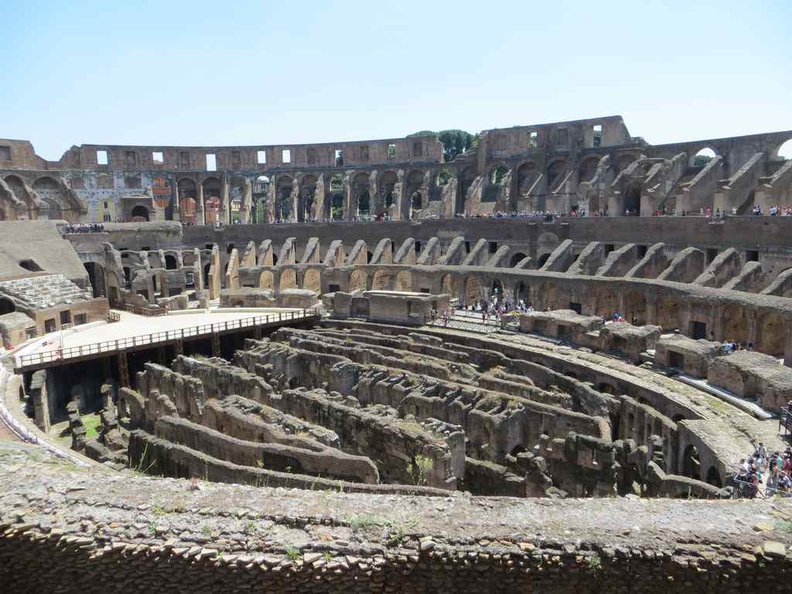
City and the Pantheon
Moreover, Rome is also a special commune of Italy and itself was a centre of the Renaissance globally. Interestingly, the city architecture you see here is the birthplace of the world’s classical architecture. It started as the grounds for new radical forms of engineering structures. Examples includes the use of gravity-assisted structured, such as Arches, domes and vault elements which allows for large cavernous building interiors we see used even today.
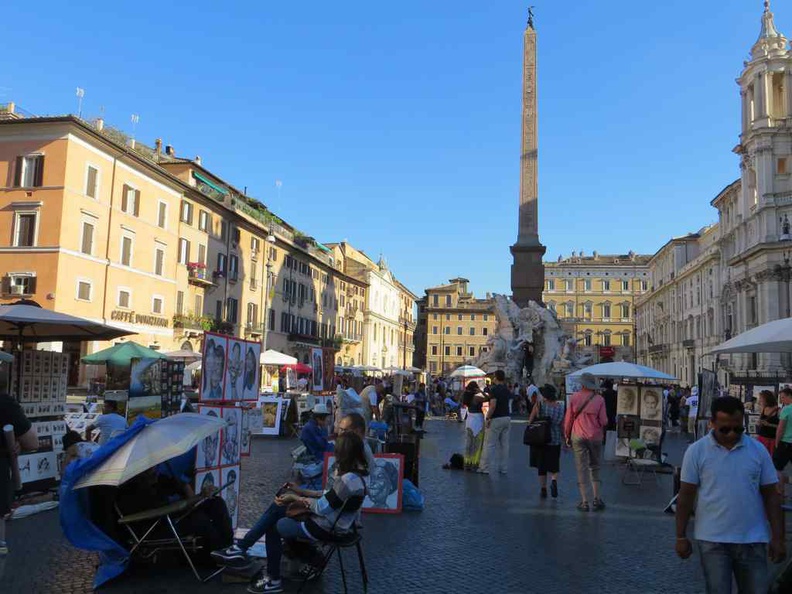
This is evident in cathedrals and churches in the city. This of course led to the birth and inspiration of neoclassical architecture we see from the mid-18th century in pretty much of Europe. You can find a number of such structures here right in Rome.
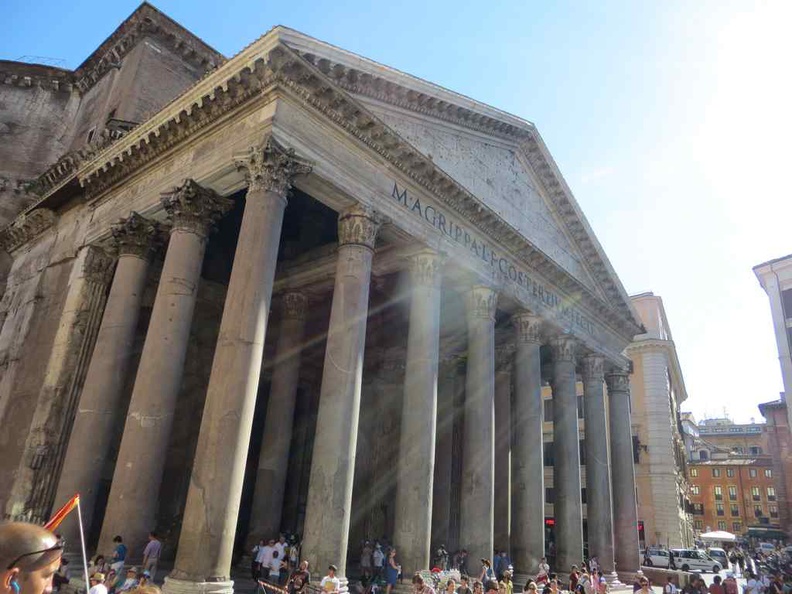
Additionally, the Pantheon is a former Roman temple in the city center, built from 113 to 125 AD as a temple. It is said to be dedicated to “all the gods of the past, present and future”. It has an impressive Rotunda a central opening (oculus) pointing up to the sky.
A notable central hub of Rome Italy is the Piazza Venezia Square. The Palazzo Venezia served as the embassy of the Republic of Venice in Rome and is also site of the Italy’s Tomb of the Unknown Soldier.
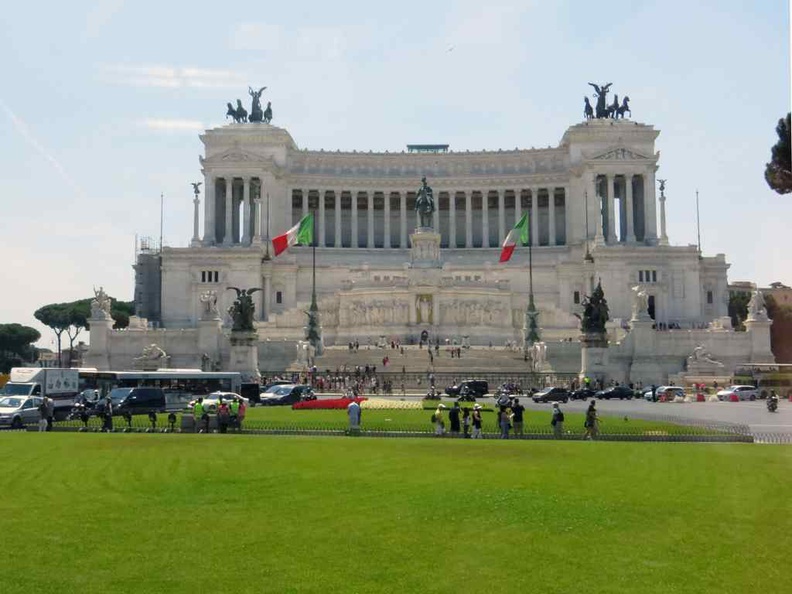
Piazza del Campidoglio
Additional notable places of interest when exploring the town is the Piazza del Campidoglio. It sits in front of a large green field with a long row of steps leading to the top. It is a masterpiece of Renaissance by Michelangelo, who also is the renowned artist behind the St. Peter’s Basilica, art and famous David marble statue.
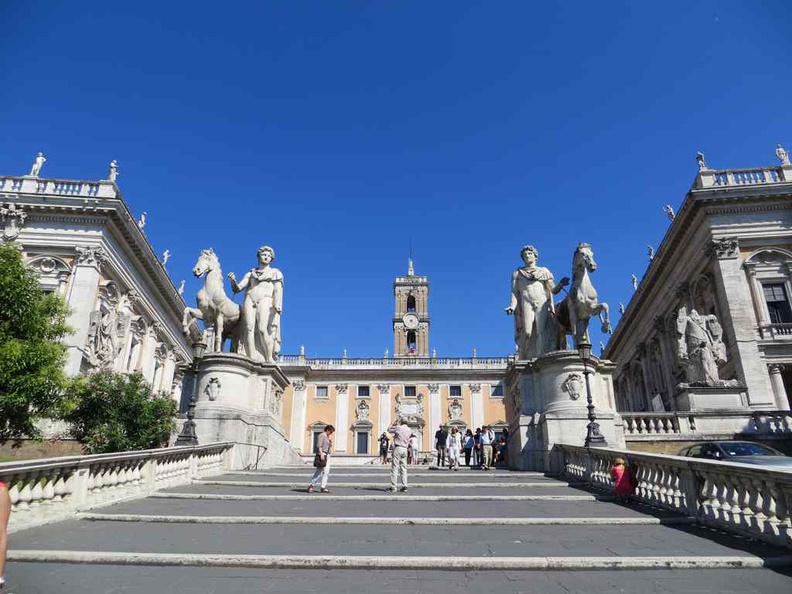
Roman Ruins
Also, a copy of the Equestrian Statue of Marcus Aurelius sits at the center of the square to complete the picture. Behind it, you can catch breathtaking views of Roman ruins and one of the largest in one area of the city.
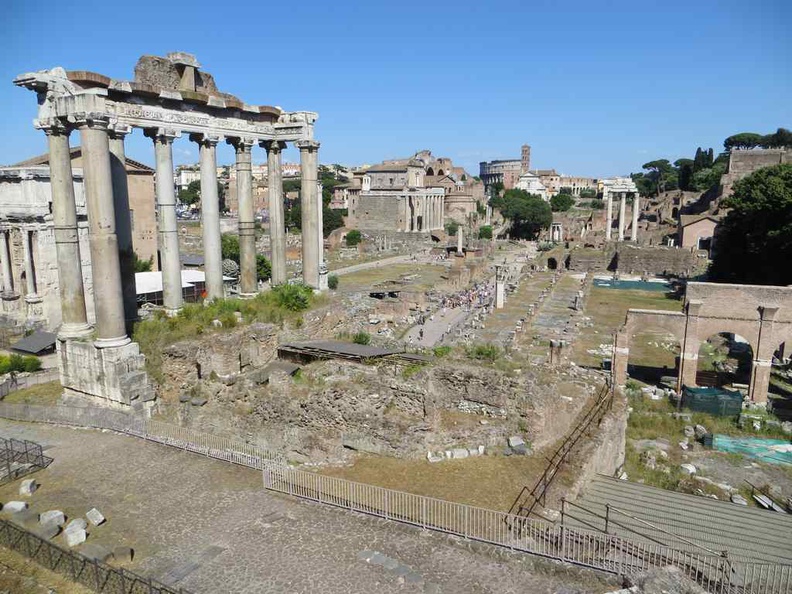
Piazza Navona
Moreover, the current city of Rome is pretty much modeled around the Ancient Roman city it is built upon. Hence, it is not uncommon to see bits of ancients ruins popping out between streets in the city, with most them situated mainly around the city’s capitol area. Littered throughout the city are also various public open squares which serves as events areas like the Piazza Navona.
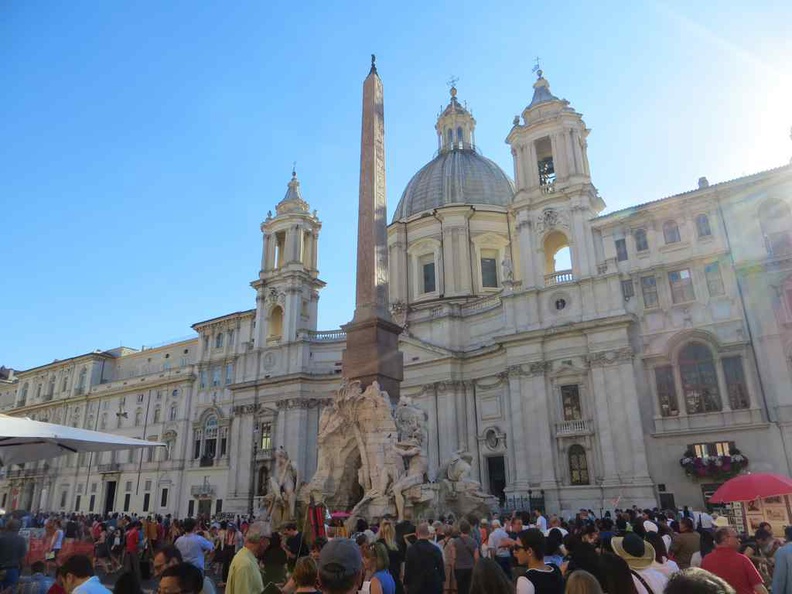
These plazas typically hold events, and serve as marketplaces hawking leather goods shop, jewellery, food stuff and street paintings. Piazza Navona is one such open plaza and marketplace built since the 1st century AD.
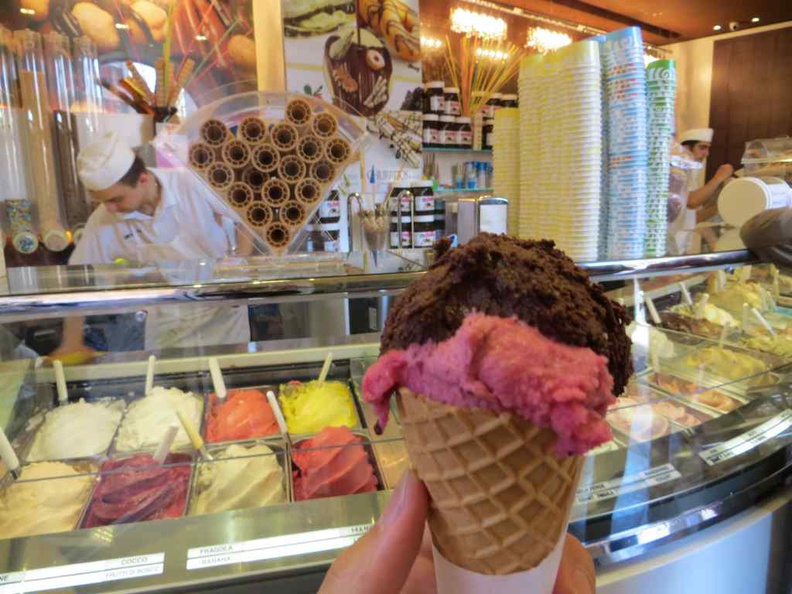
When you are done with your lunch and ice cream, also, here, you can find the Fountains Fontana dei Quattro Fiumi. Fountains crafted after Roman gods, such as Neptune, the god of water. Sitting center stage in the plaza is the Obelisco Agonale Obelisk.
Towering over the city, you can also catch the Castel Sant’Angelo, otherwise known as the Mausoleum of Hadrian. It is a towering cylindrical building in Parco Adriano Built in 123–139 AD and once the tallest building in the city from its height vantage point. Today, it is a public museum.
Now, lets check out a highlight in Rome, the iconic Colosseum amphitheater. Feast your eyes on the vast architecture marvel of early human engineering.
Exploring the vast Colosseum
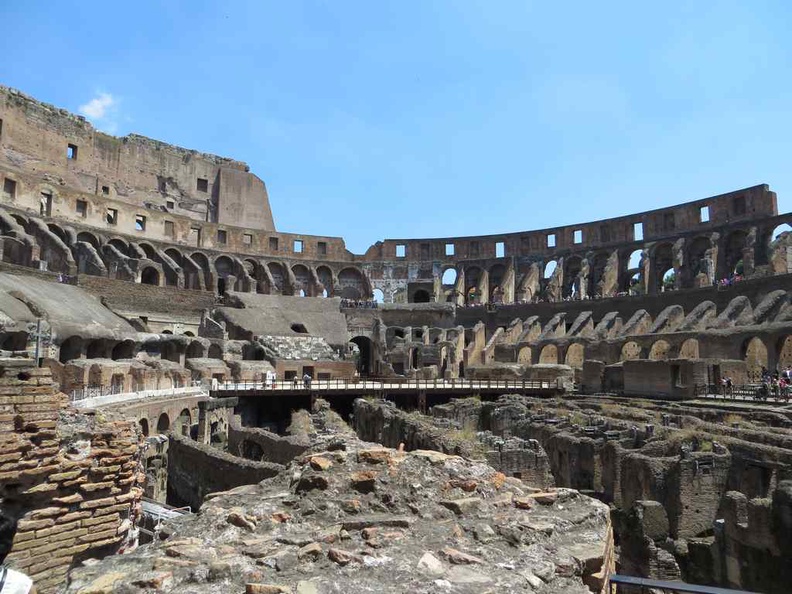
Furthermore, the Colosseum is a must see wonder of the world right here in the heart of the city. It was built for Roman rulers Vespasian, Titus in 70–80 AD. The entrance is where a rather out-of-place ticketing counter reside, where you enter into a inner courtyard and museum.
The areas below the seating areas barely very similar layout to many modern stadiums we see today, with circling outer courtyards and entrance to the grandstand area. It is an architecture marvel, considering it had been standing for over two millenniums.
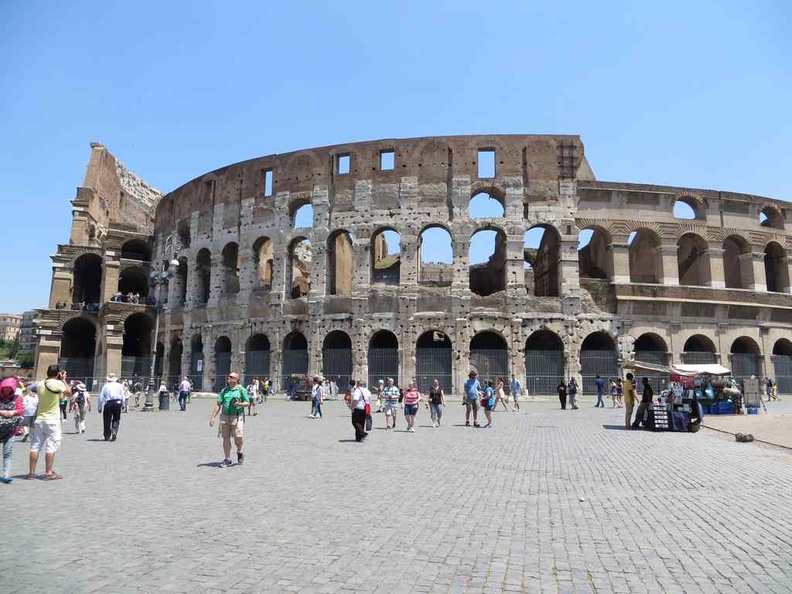
Interestingly, you can find several pock-holes seen on the walls of the inner building of the Colosseum. It looks like someone had gone crazy and chipping parts of the wall. Actually, those holes were where stabilizing iron clamps (an estimated 200 to 300 tons) used to reside.
They were structural in nature and used to hold the building’s stone structure together. However, these iron clamps, as well as weapons and fixtures were looted over the years, leaving behind the marks you see today.
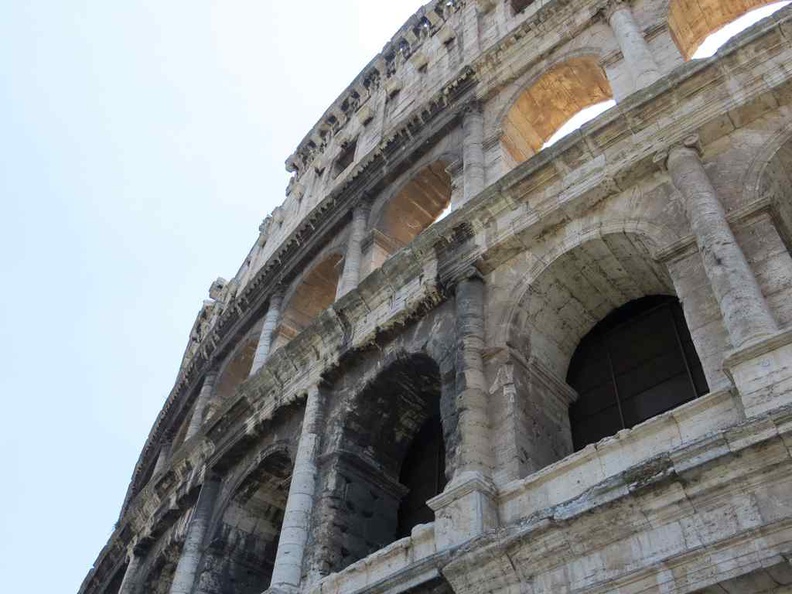
The world’s largest amphitheater
The Colosseum is alot smaller in person than what you think it is. Probably influenced by the size typically portrayed by it in movies. A large void sits at the center of the Colosseum arena grounds, which caved in due to age. Check out the vast arena grounds
180 degree aerial panorama of Colosseum grounds, Rome Italy
This exposes the various intricate underground tunnels below the arena ground. These tunnels served as trapdoors where animals or gladiators can be put onto the arena.
180 degree panorama of the Colosseum floor
In addition, the Colosseum today still holds the record as the world largest amphitheater. Though not to be confused with “Stadium”. It is the venue for gladiator shows and other public events. Legend speaks the Colosseum also hosted large naval battles. Here, the amphitheatre floor was filled with water to allow battle ships to sail within. No word on how they kept the water in though!
Additionally, wrapping up, situated not too far from the Colosseum is the Arch of Constantine. It is a Triumphal arch built in AD 315, used to cerebrate victories particularly of a military nature. It does bare a resemble to the Paris Arc de Triomphe of a similar nature.
Majestic Trevi fountain
Also, like most European countries, you can find peculiar public drinking fountains. Large and small. Interestingly, the water is drinkable and a handy spot for refilling your bottles.
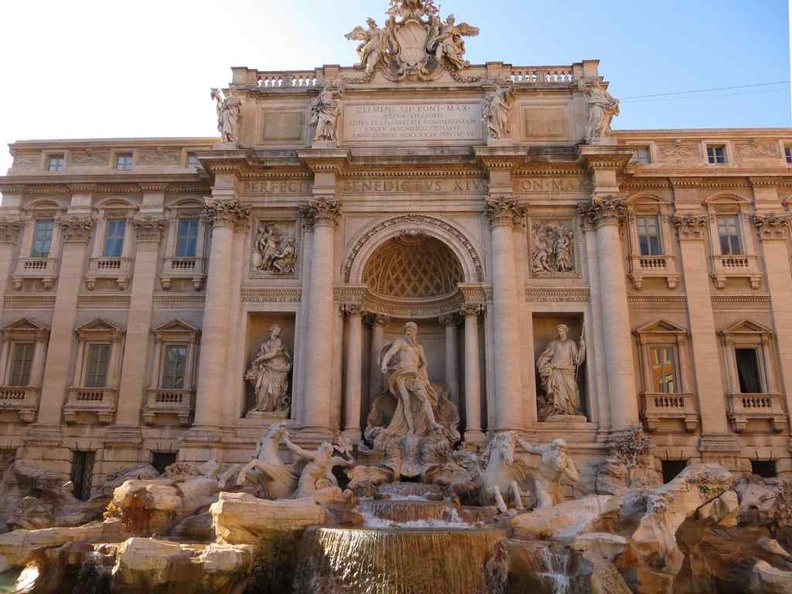
Speaking of fountains, the Trevi Fountain is another highlight to visit in the Trevi district in Rome, Italy. Also, it is the largest Baroque fountain in the city and one of the most recognisable and famous Public fountains in the world, also appearing in several notable films.
180 degree aerial panorama Trevi, Rome Italy
Built on 1762, the fountain was designed by Italian architect Nicola Salvi and completed by Giuseppe Pannini. The fountain is a work of art complete with statues and an intricate backdrop standing 26 metres tall and about 50m wide.
All in all, Rome is a city of high culture. Whether it is street buskers, painters on the streets or marketplaces hawking local produce, it is one eternal city wrapped in the arts, fashion and historic architecture. With that in hand, lets continue with our tour of Italy with Rome for an entire day, with time to check out neighboring regions, such as the city of Florence and the Vatican City.

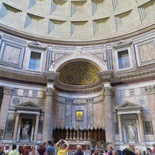
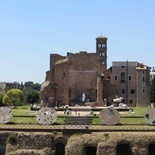
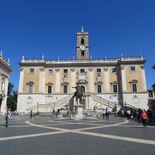

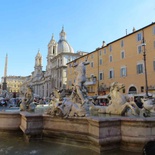
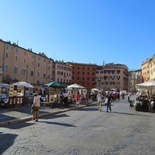
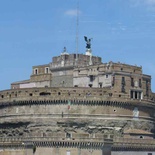
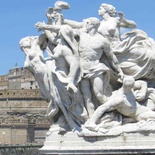
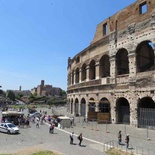
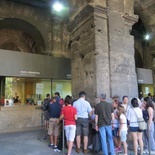
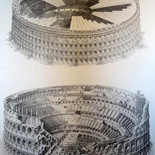
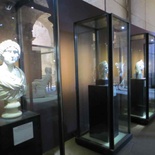
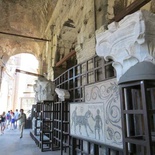
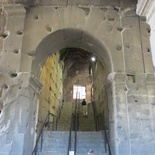
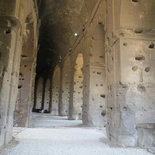
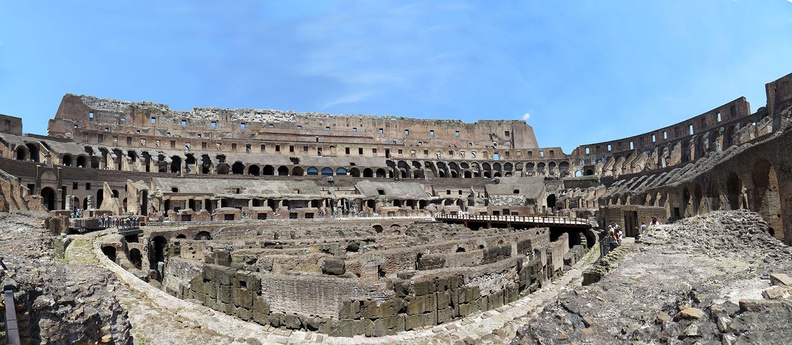
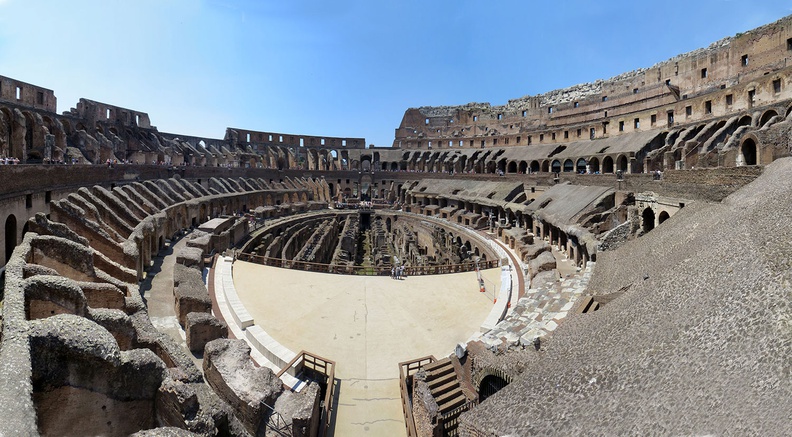
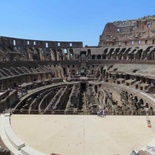
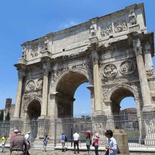
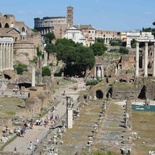

[…] the Vatican city state grounds is via a rather heavy looking fortification wall in the City of Rome. It surrounds the entire city (or country) within. It looks like the walls of a palace nor are […]
[…] Also, you can have a walk through the various pre-war architecture corridors and galleries still intact in the stadium. Here, you can find long walkways offering a nice wall-effect of support columns. It does strikingly resemble a more modern take on the galleries of the Colosseum in Rome. […]